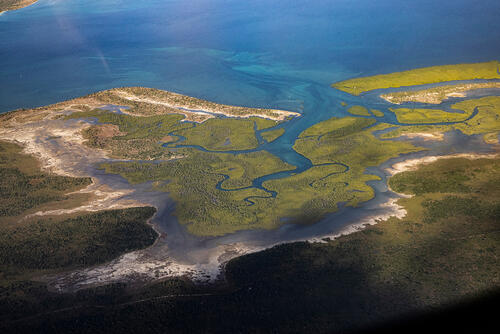While close to 630,000 people remain displaced by the ongoing conflict in Cabo Delgado, northern Mozambique, over half a million people previously displaced have returned to their areas of origin
The coastal town of Mocímboa da Praia and other parts of this district, which were heavily impacted by the violence, now host many of these returnees. Here are six things to know about the challenges of rebuilding life from zero, with ghosts from the past.
1. What caused people to flee Mocímboa?
The first attacks in Cabo Delgado took place in Mocímboa da Praia in 2017 and this was followed by more severe violence. In 2020, the town was taken over by members of a non-state armed group, but in August 2021, Mozambican and Rwandan armed forces retook control.
Since then, around 176,000 people who had fled from the district have returned following the improvement in the security situation according to United Nations figures.
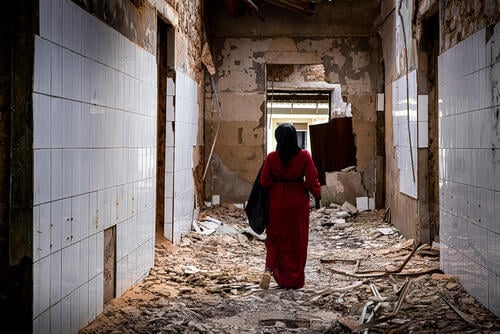
2. What’s the situation today for returnees in Mocímboa?
Mocímboa today has the largest number of returnees in all Cabo Delgado and is the area with the highest needs. Having arrived in Mocímboa after years of being displaced, families were confronted with total destruction.
Most public buildings including the schools, hospitals and health centres and water infrastructure were destroyed, as well as shops, markets, stores, banks.
Most families have had to face the harsh reality of needing to rely mainly on humanitarian assistance. People have no jobs or outlook for the future. For most returnees, coming back has meant starting from zero. They have had to re-build their houses using mud, sticks and plastic sheeting.
Even though the security situation here has been improving little by little, people still fear possible attacks when going to the fields, which keeps them away from their means of survival.
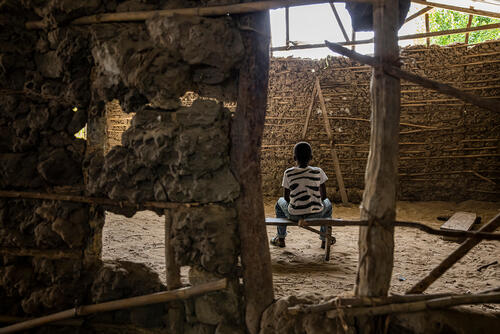
3. What are the main needs of families retuning to Mocímboa?
People need support with food, water, shelter, healthcare, including mental health care, and education. Médecins Sans Frontières (MSF) is still one of the very few organisations providing humanitarian assistance here, and it is essential to mobilise additional assistance.
Most health infrastructure was destroyed and needs to be reconstructed to ensure access to healthcare. There is an urgent need for additional health professionals, medicines, and medical equipment to make health centres and the hospital functional again.
Ambulance drivers do not yet feel comfortable responding to emergencies during the night due to concerns about the security situation.
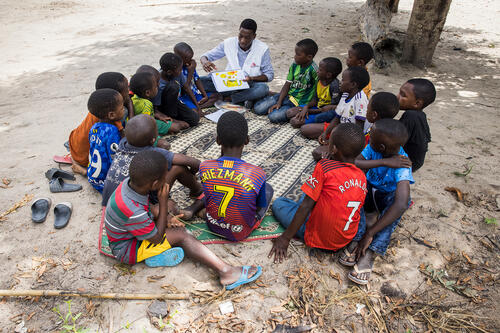
4. Do people have enough food and water to survive?
For most families, every day is a struggle to get something to eat, despite the efforts of some humanitarian organisations and the solidarity within the community. Some people cultivate whatever they can close to their houses as they don’t dare to tend crops in the forest anymore due to security concerns.
Food is rationed within each family. If it wasn’t for the fertility of the soil in Mocímboa and the access to sea and rivers for fishing, many people would experience starvation. Some have managed to build nets to fish, buy seeds and machetes for agriculture, and slowly started rebuilding their lives.
The water network of Mocímboa was also destroyed. Out of 102 public water fonts and boreholes assessed by our teams in Mocímboa town, only 23 are currently working.
This means that for the 53,500 people in Mocímboa town, the ratio is one water point per approximately 2,300 persons. To access safe water, families must walk for miles and wait in lines for hours to fill as many buckets as they can manage. The lack of water and latrines is also prompting concern about water-borne diseases such as cholera.
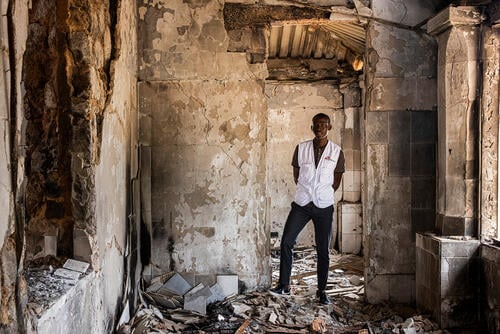
5. What is the impact on people’s mental health?
The conflict has had a significant impact on people’s mental health. Returning meant re-living the traumas experienced. The attacks were brutal and left no one untouched. Many had or saw their parents, siblings, grandparents, children, friends, and neighbours assassinated, decapitated, or killed by gunfire. Some lost their entire family.
More than 50 per cent of the patients we have seen in our mental health sessions had separation or loss as a precipitating event, and 19 per cent are direct victims of violence. We have seen cases of elderly people either taking care of their grandchildren or having lost their whole family during conflict. We have seen orphaned minors having to take care of other minors.
6. What is MSF doing in response to the situation?
Currently, our teams provide general healthcare services at the transitory health centre in Mocímboa and through mobile clinics in eight villages within the district. These services include testing and treatment for HIV and tuberculosis, sexual and reproductive healthcare, pre- and post-natal consultations, and a nutritional and mental health programme.
Between January and June, we also treated 7,300 cases of malaria and 4,800 cases of respiratory infections, referred 2,000 patients in need of further medical care, conducted 1,500 sexual and reproductive health consultations, and assisted 600 child births.
Our teams have also been helping to rehabilitate health structures in Mocímboa. To improve access to safe drinking water, we distributed soap and chorine solution kits to 16,000 families and are supporting the rehabilitation of water pumps.
MSF has been working in Cabo Delgado since 2019, ensuring access to healthcare for people displaced by the conflict or returning to their homes through community-based services and mobile clinics, and through providing support to health centres and local hospitals.
In 2023, our teams have been present in the hard to reach areas of districts of Macomia, Meluco, Mocímboa da Praia, Mueda, Muidumbe, Nangade, Namuno and Palma. Our activities have included mental health services, general and specialised healthcare consultations, health promotion, water and sanitation improvements, and distribution of essential relief items.




